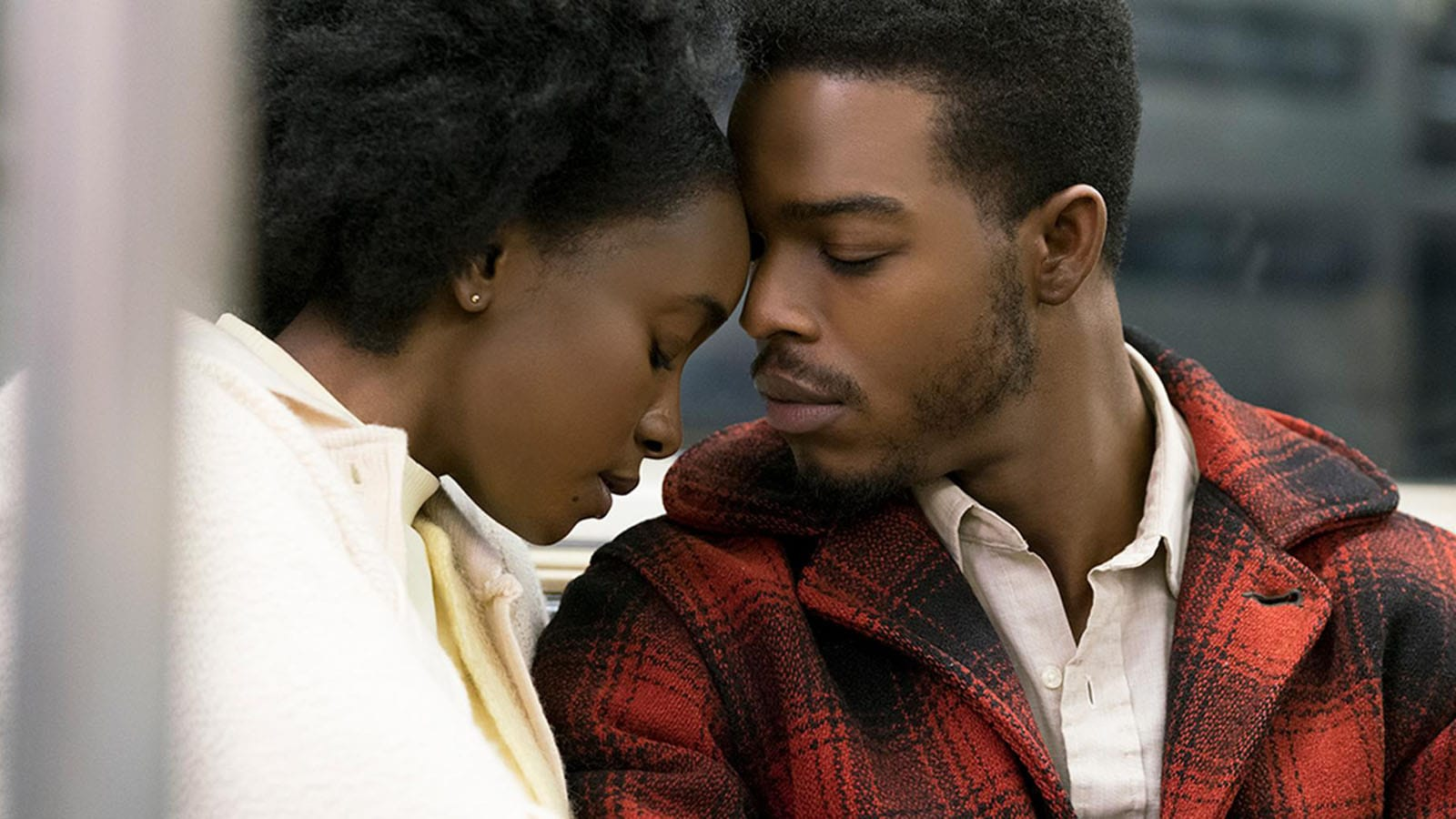Barry Jenkins’s If Beale Street Could Talk

The summer of 2013 found Barry Jenkins working on two screenplays, both of them potential follow-ups to his widely lauded but underseen feature debut, Medicine for Melancholy (2008). Moonlight, the three-part chronicle of an African-American gay man growing up in Miami, premiered in the fall of 2016 and went on to win a richly deserved Oscar for best picture moments after the infamous envelope mixup. Two years on, Jenkins has realized the other project, an adaptation of James Baldwin’s 1974 novel, If Beale Street Could Talk. For some reviewers, this is Jenkins’s best work yet; other critics are more reserved in their praise. “If the film lacks Moonlight’s sheer expressive power and primal simplicity, Jenkins is reaching further this time, telling a bigger story than the heartbreak and alienation of one taciturn kid,” writes A. A. Dowd at the AV Club.
Beale Street crisscrosses between a love story told in flashbacks and a struggle for justice set in the present moment of Baldwin’s book, Harlem in the 1970s. Tish (Kiki Layne), nineteen, and Alonzo “Fonny” Hunt (Stephan James), a twenty-two-year-old sculptor, are dreaming of marital bliss when Fonny is framed by a racist cop for a rape he didn’t commit. While Fonny awaits trial behind bars, Tish discovers that she’s carrying his child. With the help of family and friends, Tish struggles against a justice system dead set on dashing the young couple’s hopes and dreams. “Yet Jenkins refuses to focus solely on melancholy or emotional violence, trading ‘raw emotions’ for quiet heartbreak, which feels true to how people deal with the incremental disenchantment of life,” writes Michael Koresky for Film Comment.
The critical focus so far has been on Jenkins’s style, which Vulture’s David Edelstein sums up as “lush romance on top, hyper-realistic despair just beneath the surface.” For many, the influence of filmmakers Jenkins openly admires—Douglas Sirk, Claire Denis, Hou Hsiao-hsien, Wong Kar-wai—is readily visible. “Wong, in particular, is all but enshrined in this picture’s cafe interludes and dreamy whorls of cigarette smoke, shot in heart-stopping slow motion,” writes Justin Chang in the Los Angeles Times. “This referencing of some of our finest cinematic artists isn’t some pretentious affectation; it’s crucial to the way Jenkins sees his characters and the world they inhabit. It positions his vision of black lives and black cinema within a democracy of global images, giving Beale Street a sensibility that is both erudite and egalitarian.”
Writing for the Playlist, Jason Bailey adds another name to the list. “Jenkins uses more into-the-camera close-ups than most post-Jonathan Demme filmmakers would dare, keenly aware of how that composition’s directness impacts empathy. . . . Most ingeniously, a few contemporary flourishes aside, he makes what feels more like a film that was shot and cut just after the book’s release, and then locked away in a vault for forty-plus years.”
The performances are the film’s other strong suit. In the Guardian, Benjamin Lee predicts that “these are star-making turns from Layne and James, the latter in particular making a searing impact. He’s effortlessly charismatic but also gut-wrenchingly vulnerable and his tortured face will burn its way into your memory.” Several critics are also singling out Regina King as Tish’s mother and Brian Tyree Henry as an old friend of Fonny’s with a stint in prison behind him. “Just look into his eyes,” writes K. Austin Collins for Vanity Fair: “everything you need to know about what’s coming for his friend Fonny, who doesn’t yet know his own fate, is there.”



